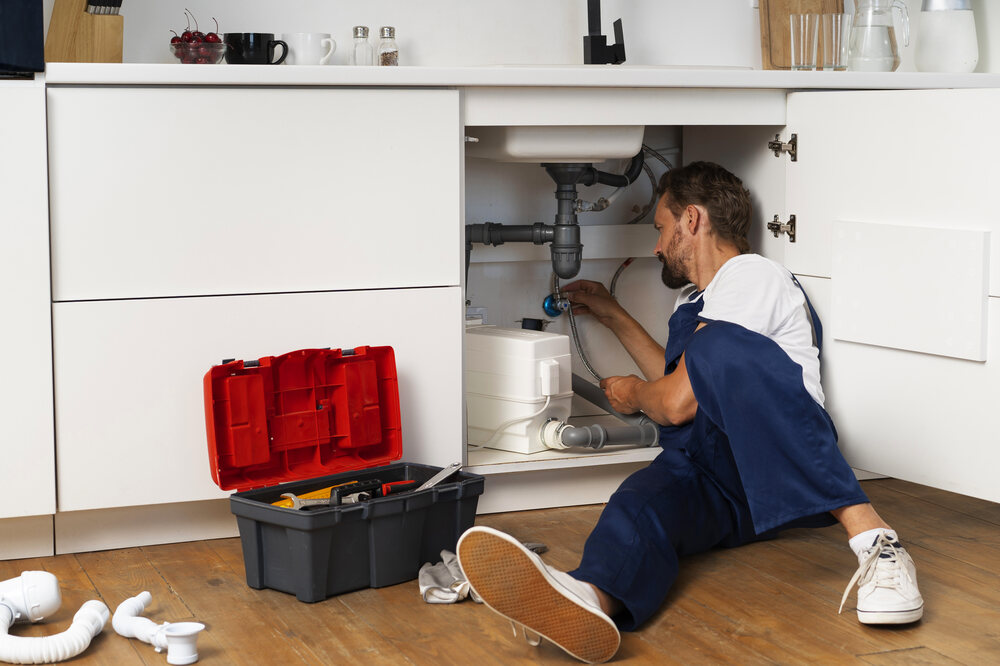When it comes to maintaining a safe, comfortable, and efficient living environment, few systems are as crucial and often overlooked as plumbing. From clean water access to waste disposal, a well-maintained plumbing system ensures your home functions smoothly. A Home plumbing maintenance guide is essential reading for homeowners who wish to avoid costly repairs and preserve the longevity of their property.
Plumbing isn’t just about convenience it directly impacts health, hygiene, property value, and even your wallet. Let’s explore why good plumbing is foundational to a well-functioning home and how proactive maintenance can save you from future headaches.
The Hidden Benefits of Good Plumbing
Your plumbing system plays a vital role in maintaining your family’s health. It ensures the delivery of clean, potable water while safely removing wastewater. Poor plumbing systems can result in water contamination, mold growth, and even structural damage that harbors bacteria and pests.
Issues like leaky pipes or backflow problems can introduce harmful pathogens into your home environment. A properly installed and maintained system prevents these hazards and keeps the water safe for drinking, cooking, and bathing.
According to the Centers for Disease Control and Prevention (CDC), access to clean water through effective plumbing systems has been one of the most significant public health achievements of the 20th century.
Economic Impact: Avoiding Costly Repairs
Neglecting plumbing maintenance might seem harmless at first, but small issues often snowball into major expenses. A dripping faucet can waste hundreds of gallons of water per year, adding to utility bills. More critically, unseen leaks can damage floors, walls, and foundations.
By performing routine inspections and promptly addressing minor issues, homeowners can avoid the steep costs associated with emergency plumbing services or structural repairs. Simple habits, like not flushing inappropriate items and being mindful of what goes down your drain, go a long way in preserving system integrity.
Boosting Property Value
Whether you plan to stay in your home for decades or eventually sell, plumbing has a direct impact on property value. Potential buyers are often deterred by signs of outdated or problematic plumbing systems. On the flip side, modern, efficient plumbing adds to a home’s appeal and appraisal.
Homes with high-efficiency toilets, tankless water heaters, and properly insulated pipes are more attractive in today’s eco-conscious market. Regular upgrades and maintenance ensure your home remains competitive and retains its resale value.
Environmental Responsibility
Water conservation is becoming increasingly important, and your home’s plumbing plays a central role in this effort. Efficient fixtures like low-flow showerheads and dual-flush toilets can drastically reduce water usage. Addressing leaks not only lowers your bills but also helps preserve a vital natural resource.
Modern plumbing technologies such as greywater recycling and smart leak detection systems allow homeowners to monitor and reduce water consumption with ease. Investing in these solutions demonstrates environmental responsibility while contributing to long-term savings.
Signs You Need Plumbing Attention
Even with the best maintenance, plumbing systems age and need occasional repairs or updates. Here are a few signs it may be time to call a professional:
- Persistent low water pressure
- Slow-draining sinks or tubs
- Discolored or foul-smelling water
- Frequent toilet clogs or overflows
- Unexplained spikes in water bills
Early intervention is key. If you notice any of these issues, it’s wise to consult a licensed plumber before the problem escalates.
Creating a Maintenance Schedule
Prevention is better than cure, and that’s especially true with plumbing. Here are some basic tips to include in your plumbing maintenance schedule:
- Inspect for leaks under sinks and around fixtures monthly
- Clean out drain traps and use drain covers to catch debris
- Flush your water heater annually to remove sediment
- Test your sump pump before rainy seasons
- Schedule a professional inspection every 1–2 years
For further guidance on moving best practices and regulations, consider consulting authoritative sources such as the Federal Motor Carrier Safety Administration (FMCSA). They provide comprehensive information on interstate moving regulations, consumer rights, and safety guidelines.
Conclusion
Good plumbing is more than just a convenience it’s a critical component of a healthy, functional, and financially sound home. Investing time in learning about your plumbing system and practicing preventive care pays off in more ways than one.
Make it a habit to follow a reliable Home plumbing maintenance guide and don’t hesitate to consult professionals when needed. Your home, your wallet, and your well-being will thank you.
